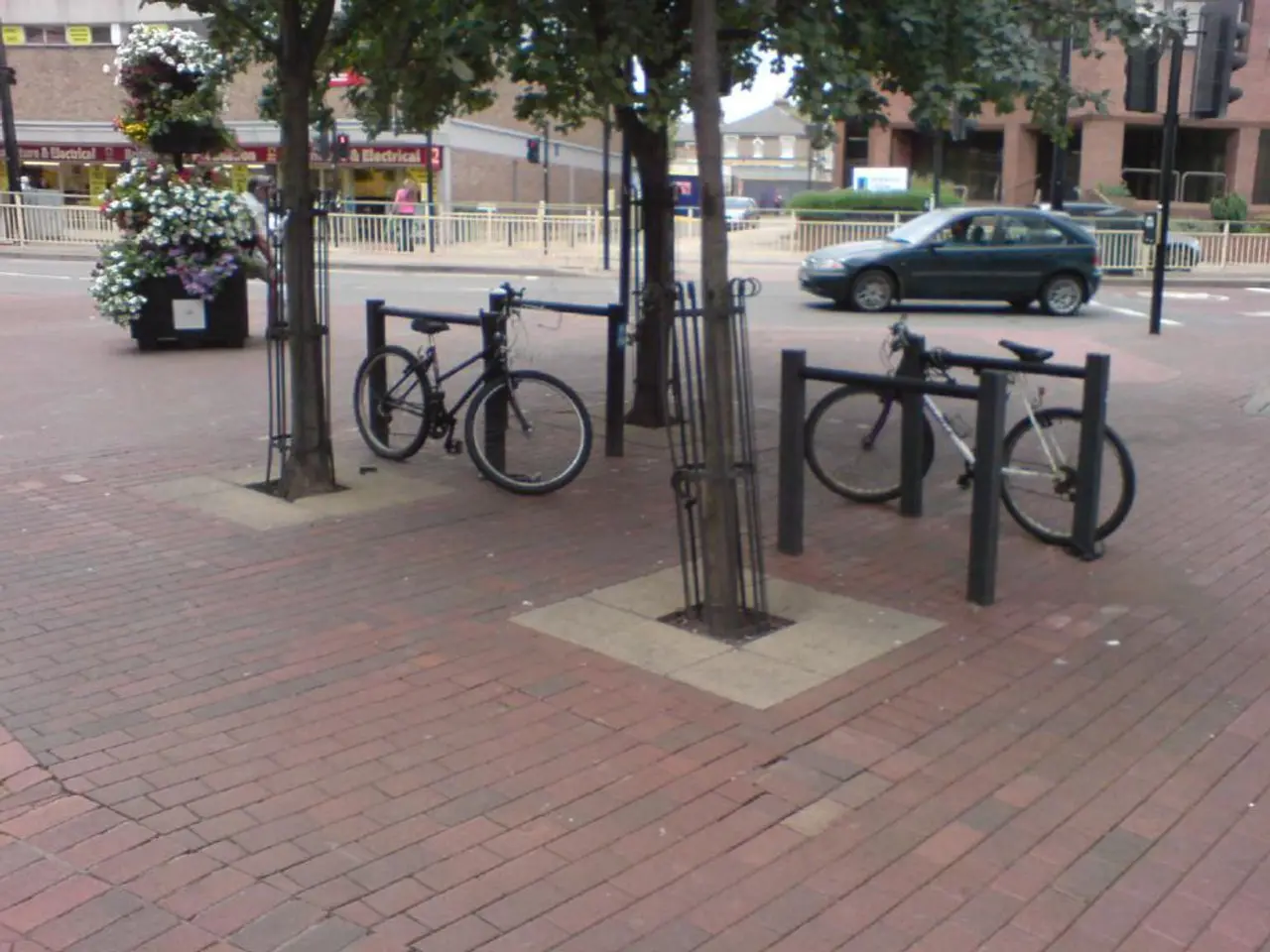Forced Displacement of Palestinians: Home Evictions in the West Bank
Israeli Settlements in the West Bank: A Contentious Issue
Israeli settlements, communities of Israeli Jews built on land occupied by Israel since the 1967 Six-Day War, continue to be a point of contention in the West Bank. With over 700,000 Israeli settlers residing in the West Bank and East Jerusalem, these settlements have become a significant factor in the ongoing Israeli-Palestinian conflict.
These settlements serve multiple purposes, ranging from security and strategic reasons to historical or religious claims. Some settlers believe they have a sacred right to occupy the territory, while others seek to recover property lost in earlier conflicts.
However, the legality of these settlements is a matter of debate. The international community, including the United Nations, considers them illegal under international law, specifically the Fourth Geneva Convention. Israel, on the other hand, disputes this interpretation.
The settlements' impact on Palestinian statehood is another area of concern. The expansion of settlements, such as the plan to build 3,500 housing units in the E1 area near Maale Adumim, risks fragmenting the West Bank, making a contiguous, viable Palestinian state difficult or impossible to establish.
Moreover, the expansion and settler activities have been linked to increased violence, Palestinian evictions, military operations, and severe restrictions on Palestinian freedom of movement. These factors have contributed to human rights abuses and strained daily life for many Palestinians.
Politically, settlement expansion is viewed as sabotaging the prospects for a two-state solution, undermining peace negotiations, and increasing tensions.
In the West Bank, American-born Israeli settler Daniel Winston, who represents about 5% of Israel's population and 15% of the West Bank's population, according to data from the Peace Now organization, is one of many settlers who feel emboldened. Israeli settlers often act with impunity, often encouraged by Israeli security forces.
Sky News correspondent Stuart Ramsay recently visited the West Bank, where he encountered Israeli settlers and Palestinians whose lives have been affected by the settlements. Palestinians have been forced out of their homes, despite their families having lived there for generations.
One such displaced farmer is Mohammed Robin, who claims that the lands he was forced off were owned by his family since 1952. The presence of Jewish settlers has increased tension in the region, with many Palestinians fearing for their future.
Mutaz Tawafsha, president of the Chamber of Sinjel, believes that the city will eventually end up completely isolated due to the surrounding settlements. The controversy surrounding these settlements continues to fuel the Israeli-Palestinian conflict, with no clear resolution in sight.
References: 1. Al Jazeera. (2021, March 16). Israel's E1 settlement plan: What you need to know. Retrieved from https://www.aljazeera.com/news/2021/3/16/israels-e1-settlement-plan-what-you-need-to-know 2. BBC News. (2021, March 16). E1 settlement plan: What is it and why is it controversial? Retrieved from https://www.bbc.com/news/world-middle-east-56450320 3. B'Tselem. (n.d.). The Israeli Settlement Enterprise. Retrieved from https://www.btselem.org/settlements 4. Human Rights Watch. (2021, March 16). Israel: Settlement Expansion Threatens Peace. Retrieved from https://www.hrw.org/news/2021/03/16/israel-settlement-expansion-threatens-peace
Read also:
- Southwest region's most popular posts, accompanied by an inquiry:
- Discussion between Putin and Trump in Alaska could potentially overshadow Ukraine's concerns
- Massive 8.8 earthquake hits off the coast of Russia's Kamchatka Peninsula, prompting Japan to issue a tsunami alert.
- Tinubu's administration allegedly causing issues within every political party as Peter Obi's name surfaces - Obidient Movement asserts








